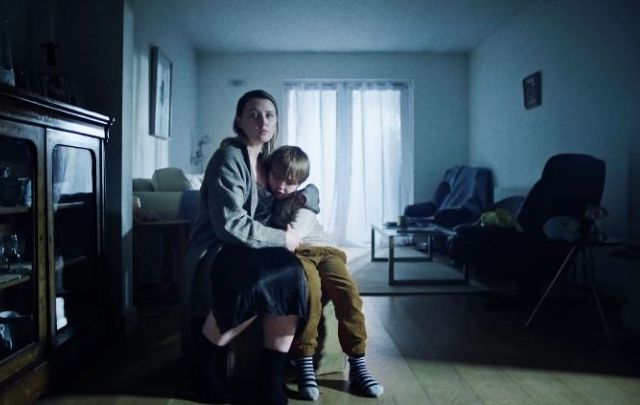The results of the Irish charity, Women's Aid's Annual Impact Report for 2022 detail 31,229 contacts with domestic abuse support services in Ireland. Their report shows a 16% increase in contacts compared to 2021. These figures mark a 50-year high in reporting of domestic violence in Ireland.
Women's Aid also heard 33,990 disclosures of domestic abuse against women and children. This abuse includes coercive control, emotional abuse, physical violence, sexual abuse, and economic control. In 2012, 12 women were killed violently.
Their report stated that the "cost of living housing crises exacerbate the toll on women and families affected. The promised reforms in the government’s Third National Strategy on Domestic, Sexual and Gender-Based Violence cannot come quickly enough and must be properly resourced to avoid failure."
In March 2023 it was announced that government ministers approved the creation of a new agency dedicated to tackling and reducing domestic, sexual and gender-based violence (DSGBV). According to Irish Legal News, "A key responsibility of the new agency will be overseeing and supporting the provision of refuge accommodation for victims, supporting a government commitment to double the number of refuge places and increase the number of safe homes and other accommodations by 2026."
The Chief Executive of Women’s Aid, Sarah Benson, called their Annual Impact Report for 2022 a "harrowing reminder of the levels of violence and abuse in homes and relationships in Ireland. While our figures are shocking, we know that they are only the tip of an enormous iceberg.
"One in four women in Ireland are subjected to domestic abuse. We know that so many women suffer alone, in silence, and without specialist support."
Benson outlined what specifics were included within these reports.
"Women told us that their partners or ex-partners were subjecting them to a broad and brutal pattern of abuse. Women reported assaults with weapons; constant surveillance and monitoring; relentless put-downs and humiliations; the taking and sharing of intimate images online, complete control over all family finances; sexual assault, rape, and being threatened with their or their children’s lives," Benson said.
She called the impact on these women's lives "chilling" and explained that they ranged from "exhaustion, isolation, and hopelessness; to being brutalized and wounded, suffering miscarriages, poverty, feeling a loss of identity and suicide ideation, hypervigilance; and homelessness.”
Benson also pointed out that "other challenges" including the "court systems" were adding to these women's suffering.
"The court systems, and in particular, the District courts are under pressure, creating lengthy, protracted, and traumatizing delays for women involved in legal proceedings," she said.
"We are aware that post-separation abuse is a significant issue that is often played out in family law courts. Last year alone, 26% of women in contact with us were being abused by a former partner."
The housing crisis limits options for a safe home for so many. The negative impact of inflation on family incomes, taken especially with deliberate economic abuse, exacerbate acute and frightening situations for many thousands of women and children across the country.”
International context
Figures across the world are just as shocking as Ireland's record-breaking high.
According to the UN Women 2021 report, one in three women worldwide experiences physical or sexual violence, mostly by an intimate partner.
As of the UN 2015 report, it was calculated that 42% of women fewer than 40% of the women who experience violence seek help of any sort.
In the United States, specifically, the figures are just as distressing. In the US more than 1 in 3 women and 1 in 4 men have experienced either physical violence, rape, or stalking by an intimate partner in their lifetime. Victims are commonly abused by those who are closest to them and intimate partner violence accounts for 15% of all violent crimes.
Each day in the United States, over 20,000 calls are placed to domestic violence hotlines by individuals reporting incidents. It has been calculated that on average 20 people per minute are physically abused by an intimate partner.
A brighter future for Ireland?
Benson, of Women's Aid in Ireland, said that "the heightened public awareness on domestic abuse over the last number of years is very welcome. It means that bit by bit, we are chipping away at the silence that imprisons women and children in very difficult situations.
"However, the more we talk about domestic abuse the more victims and survivors will come forward. Can we confidently say that when they do come forward, they will get all the support and protection they need?”
Returning to the stark fact that 12 women were killed by violence in 2022 in Ireland, Benson added "The recent Independent study on Familicide and Domestic Violence Deaths provides a ground-breaking roadmap to help prevent future domestic violence deaths. Rapid implementation of legislative change is needed to facilitate real and meaningful actions to support bereaved families and to establish a system of domestic violence death reviews, such as are in place in other jurisdictions including Northern Ireland.
"These changes require a whole of Government approach and should not be dispersed across different departments without a coordinated plan. Government must put in place a dedicated and focused vehicle for the implementation of the many recommendations in this foundational document - including required legislation - to ensure prompt and successful outcomes.
"We must get this right to honor the many lives that have been lost in such circumstances and to honor their loved ones left behind. We must give ourselves the tools to learn from the past so we can do better in the future to prevent such deaths.”
If you or anyone you know is being affected by domestic violence please reach out to your local police authorities.




Comments